Status: Native
Synonyms:
None
Salix irrorata is a middle in size between the smaller Salix exigua and the larger Salix gooddingii of our three most common willows. Salix irrorata usually has an obvious whitish powdery bloom on its stems. It is much branched from the base. It is found in middle elevations at the side of perennial flowing water. The Salicaceae can be confused with small populations of Populus angustifolia, but willows always have only one scale covering the bud while Populus has several.
Please click on an image for a larger file.
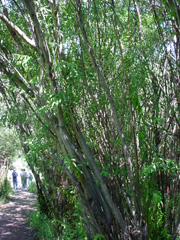
Salix irrorata, photo Russ Kleinman & Kelly Kindscher, Lake Roberts, July 15, 2007
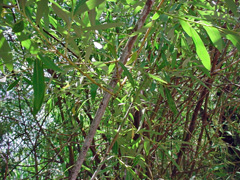
Salix irrorata, with whitish powdery bloom on stems, photo Russ Kleinman & Kelly Kindscher, Lake Roberts, July 15, 2007
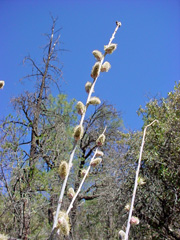
Salix irrorata, catkins, photo Russ Kleinman, Pinos Altos Range, Myer Canyon, Mar. 29, 2008
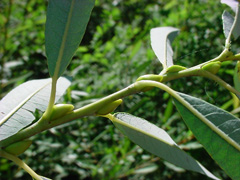
Salix irrorata, single scale over bud, photo Russ Kleinman, Pinos Altos Range, Meadow Creek, Sept. 5, 2008
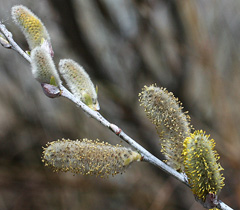
Salix irrorata, staminate catkins, photo Russ Kleinman, Bill Norris, Scott Zager, Leith Young, Bonnie Arfsten, & Maggie Knox, Gila River at Alum Camp, March 29, 2009
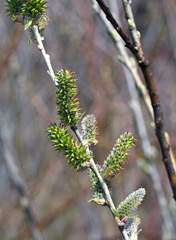
Salix irrorata, pistillate catkins, photo Russ Kleinman, Bill Norris, Scott Zager, Leith Young, Bonnie Arfsten, & Maggie Knox, Gila River at Alum Camp, March 29, 2009
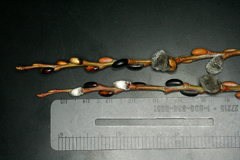
Salix irrorata, closeup of winter twigs, photo Russ Kleinman, Pinos Altos Range, Signal Peak turnoff, December 28, 2009
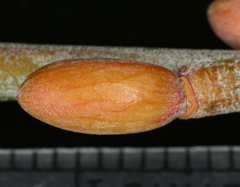
Salix irrorata, macro of leaf scar and bud on winter twig, photo Russ Kleinman, Pinos Altos Range, Signal Peak turnoff, December 28, 2009
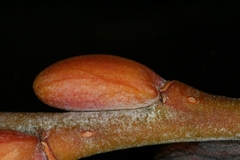
Salix irrorata, lateral macro of leaf scar and bud on winter twig, photo Russ Kleinman, Pinos Altos Range, Signal Peak turnoff, December 28, 2009
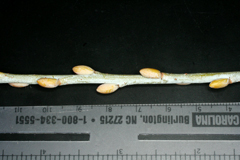
Salix irrorata, closeup of different (possibly healthier) winter twig on same plant as above 3 pix, photo Russ Kleinman, Pinos Altos Range, Signal Peak turnoff, December 28, 2009
Back to the Index